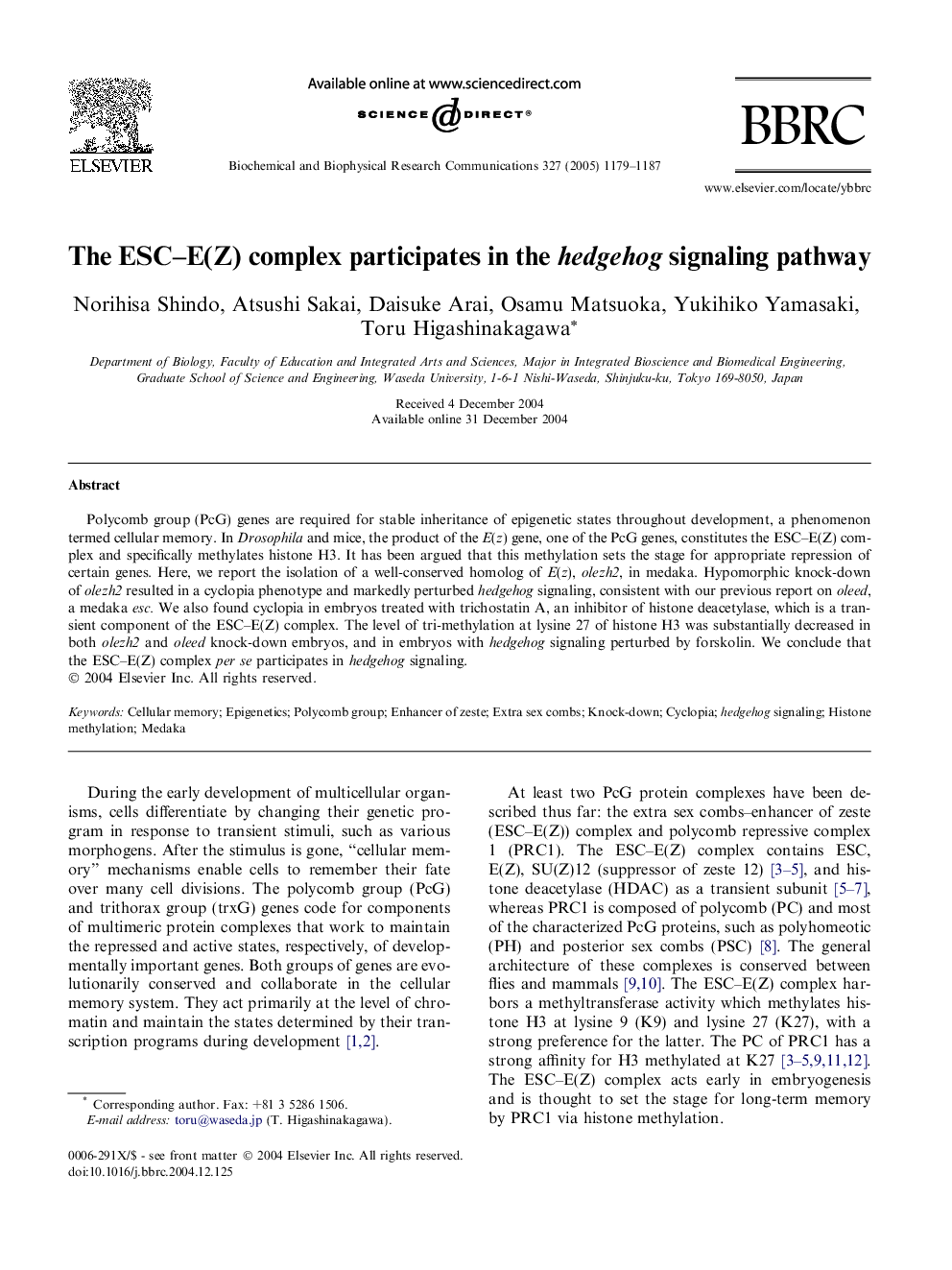| Article ID | Journal | Published Year | Pages | File Type |
|---|---|---|---|---|
| 10771306 | Biochemical and Biophysical Research Communications | 2005 | 9 Pages |
Abstract
Polycomb group (PcG) genes are required for stable inheritance of epigenetic states throughout development, a phenomenon termed cellular memory. In Drosophila and mice, the product of the E(z) gene, one of the PcG genes, constitutes the ESC-E(Z) complex and specifically methylates histone H3. It has been argued that this methylation sets the stage for appropriate repression of certain genes. Here, we report the isolation of a well-conserved homolog of E(z), olezh2, in medaka. Hypomorphic knock-down of olezh2 resulted in a cyclopia phenotype and markedly perturbed hedgehog signaling, consistent with our previous report on oleed, a medaka esc. We also found cyclopia in embryos treated with trichostatin A, an inhibitor of histone deacetylase, which is a transient component of the ESC-E(Z) complex. The level of tri-methylation at lysine 27 of histone H3 was substantially decreased in both olezh2 and oleed knock-down embryos, and in embryos with hedgehog signaling perturbed by forskolin. We conclude that the ESC-E(Z) complex per se participates in hedgehog signaling.
Keywords
Related Topics
Life Sciences
Biochemistry, Genetics and Molecular Biology
Biochemistry
Authors
Norihisa Shindo, Atsushi Sakai, Daisuke Arai, Osamu Matsuoka, Yukihiko Yamasaki, Toru Higashinakagawa,
